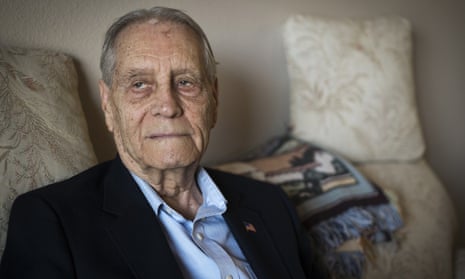A major Japanese corporation planned to offer a landmark apology on Sunday for using US prisoners of war for forced labor during the second world war, nearly 70 years after the end of the fighting.
A senior Mitsubishi Materials executive was to offer the apology to former POWs – including 94-year-old James Murphy of Santa Maria, California – during a ceremony at the Simon Wiesenthal Center’s Museum of Tolerance in Los Angeles.
Rabbi Abraham Cooper, an associate dean at the center whose primary focus in the past has been Holocaust education, said he believed the move to be unprecedented.
“As far as I know, this is a piece of history,” Cooper said. “It’s the first time a major Japanese company has ever made such a gesture. We hope this will spur other companies to join in and do the same.”
Japan’s government issued a formal apology to American POWs in 2009 and again in 2010. But the dwindling ranks of POWs who were used as slaves at mines and industrial plants have so far had little luck in getting apologies from the corporations who used them, sometimes in brutal conditions.
Some 12,000 American prisoners were shipped to Japan and forced to work at more than 50 sites to support imperial Japan’s war effort, and about 10% died, according to Kinue Tokudome, director of the US-Japan Dialogue on POWs, who has spearheaded the lobbying effort for companies to apologize.

Comments (…)
Sign in or create your Guardian account to join the discussion